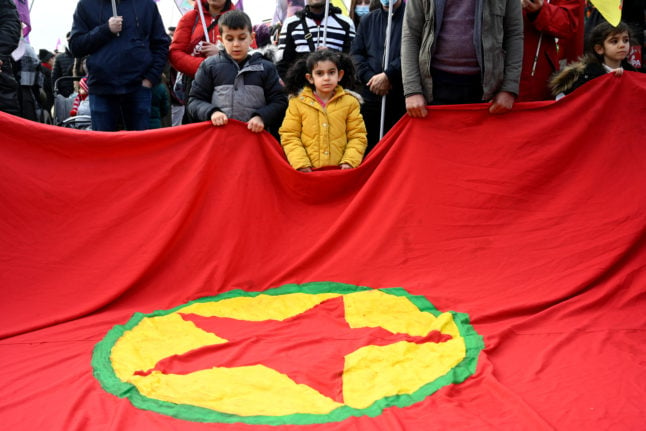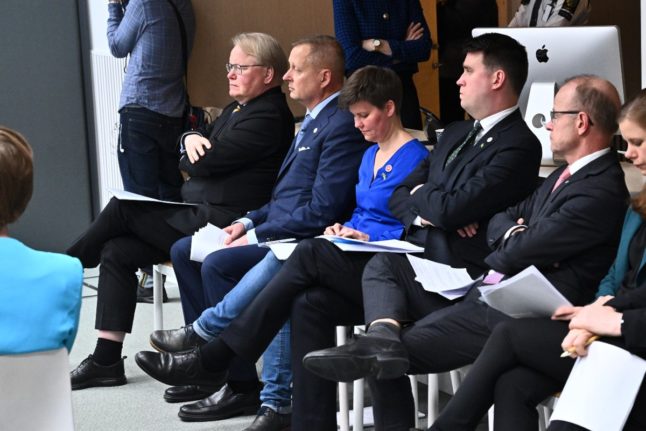Nato on Tuesday kicked off the accession procedures for Sweden and Finland after a deal was struck with Turkey, which had blocked the Nordic nations from joining.
Turkish President Recep Tayyip Erdogan had accused them of being havens for Kurdish militants, specifically highlighting the outlawed Kurdistan Workers’ Party (PKK) he has sought to crush, and for promoting “terrorism”.
On Tuesday, images spread on social media showing parliamentarians from the Left Party, which opposed Sweden’s decision to apply for Nato membership, posing with flags from the PKK, as well as militant group YPG and the all-female YPJ, considered terrorist groups by Turkey.
Vänsterpartistiska riksdagsledamöter poserar med terrorgruppen PKK:s flagga i Almedalen.
Partiet som alltid står på fel sida av historien. pic.twitter.com/VkSHAebedM
— Emil Moghaddam (@emil_moghaddam) July 5, 2022
The images were taken during an annual political gathering on the island of Gotland.
“The PKK is a designated terror organisation, not just in Sweden, but in the EU and posing with such flags is extremely inappropriate,” Andersson told news agency TT.
Left Party MP Lorena Delgado Varas, who was one of those involved in the political stunt, criticised what she called the hypocrisy of the other parties for supporting Kurdish groups while they were fighting the Islamic state group.
“Now they want to turn around, willing to cosy up with the dictator Erdogan. All to join Nato,” Delgado Varas wrote on Twitter.
Sweden’s Left Party is not part of the government but is helping prop up Andersson’s Social Democrat cabinet.
Following the Russian invasion of Ukraine, Sweden and Finland reversed decades of military non-alignment by applying for Nato membership in mid-May. While Turkey approved formally inviting Sweden to join, the accession bid still needs to be ratified by all 30 Nato members.
Erdogan has warned that his country could still block Sweden and Finland if they fail to implement the deal with Ankara.
Turkey has also said it is seeking the extradition of 12 suspects from Finland and 21 from Sweden.



 Please whitelist us to continue reading.
Please whitelist us to continue reading.
Member comments